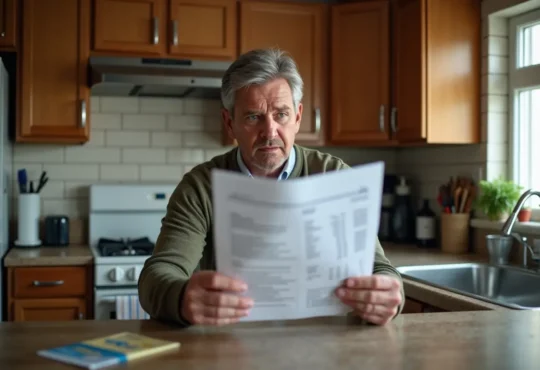
How to Get Rid of Septic Smell in House
The smell of septic in your house isn’t just annoying—it could signal serious problems that need quick action. Sewer gasses contain methane, which is very flammable, and hydrogen sulfide, which becomes toxic at high levels. These odors need immediate attention, or you might face sewage backing up into your showers, baths, and even under your floors.
Homeowners need to take septic tank smells seriously because they can be dangerous. People who breathe septic gas regularly often suffer from fatigue, nausea, headaches, and dizziness. The smell becomes more noticeable during “heavy air days”. Anyone who notices septic smells in their house should know how to eliminate them fast to protect their family’s comfort and safety.
This piece explains everything about septic odors—from common causes to budget-friendly fixes. You’ll learn about warning signs of major issues and ways to prevent them. Your septic tank needs pumping every one to two years. This maintenance schedule is vital to avoid these unpleasant and potentially dangerous situations.
Contents
Common Causes of Septic Tank Smell in House
Finding the source of a septic smell in your house means tracking down the specific cause. You might face several problems that create these nasty odors. Some are easy fixes while others need professional help.
1. Full or overflowing septic tank
A full tank is the most common reason for septic smells in your house. Your tank can overflow into the drain field when solid waste builds up without regular pumping. This forces gasses to escape through vents and pipes. You’ll notice slow drains, gurgling toilets, and strong sewage smells. Most homes need their tanks pumped every three to five years based on family size and usage. A tank that overflows can back up sewage into toilets and drains. This creates both smell issues and health risks.
2. Dry P-traps in unused drains
P-traps are U-shaped pipes under your sinks, tubs, and floor drains. These pipes hold water to block sewer gasses from entering your home. The water in rarely used bathrooms or basement drains can dry up in just one month, especially during winter. The seal breaks and lets smelly gasses escape. You can fix this by pouring about a gallon of water down these drains each week.
3. Clogged or blocked vent pipes
Your home’s plumbing system has vent pipes that send gasses outside and control air pressure for water flow. These vents can get blocked by frost layers during cold weather. Snow or debris might also plug them up. Gasses have nowhere to go except back into your house without proper ventilation. Your toilets might gurgle, drains slow down, and septic odors stick around.
4. Damaged toilet wax seals
Each toilet’s base has a wax ring connecting it to the drainage system. This ring stops water leaks and blocks sewer gasses. These seals can crack or wear out as time passes. A bad wax ring shows itself through smells around one specific toilet, water leaking at the base, and a toilet that wobbles slightly.
5. Cracked or leaking pipes
Damaged sewage pipes create direct paths for smells to enter your home. A proper septic system should be airtight except for vent stacks. Watch out for constant sewer smells, visible mold with odors, and unusually green lawn patches where sewage might leak.
6. Bacterial imbalance in the tank
Your septic system needs good bacteria to break down waste. Extreme temperatures, harsh chemicals, or antibiotics can throw off this balance. This slows waste breakdown and lets gasses flow back through drains. The smells often stick around even after trying other fixes.
How to Get Rid of Septic Smell in House: DIY Fixes
Getting rid of septic smells at home doesn’t always need a professional. You can try several DIY solutions that work well and save money on service calls.
1. Refill dry traps with water
Your P-traps need water to stop sewer gasses from getting into your home. Unused drains can dry out quickly, sometimes in just three to five months. The solution is simple – pour half a gallon of water into the trap to rebuild the barrier. Run water through fixtures you rarely use at least twice a year. A cup of white vinegar after the water helps kill larvae and makes the water last longer.
2. Use baking soda and vinegar to clean drains
This natural cleaning mix tackles drain odors through a chemical reaction. Start by pouring one cup of baking soda down the drain, then add two cups of hot vinegar. The mixture creates carbon dioxide bubbles that break up small clogs and remove odors. Let it fizz for an hour before running hot water. A weekly cup of baking soda helps keep your septic system’s pH levels balanced between 6.8-7.6.
3. Clear debris from roof vent stacks
Roof vents let sewer gasses escape safely outside your home. Look out for gurgling sounds, slow drains, or strange smells that signal a blockage. A metal cage or screen over vent openings prevents blockages, which matters most on flat roofs with shorter, exposed vents. Wider vents help prevent ice buildup in cold weather.
4. Replace faulty toilet wax rings
Wax rings seal toilets to sewer pipes. Water leaks around the toilet’s base, wobbly toilets, or constant odors point to a failing seal. New wax rings cost less than $10. You’ll need simple tools: an adjustable wrench, putty knife, bucket, and towels. After installing, press down on the closed toilet lid to evenly compress the ring and ensure the base sits level with the floor.
5. Use septic-safe biological additives
Biological additives pack billions of helpful bacteria that break down waste and eliminate odors. These treatments maintain bacterial balance, prevent clogs and reduce how often you need pump-outs. Pour the recommended amount (usually 8 ounces) down any toilet and flush monthly. These products really help after using harsh chemicals that might have upset your tank’s bacterial balance.
When Septic Gas Smell in House Means a Bigger Problem
DIY solutions can fix minor septic problems, but several warning signs point to serious issues that need professional help.
1. Signs of a broken pump or pipe
A broken sewage pump stops waste from flowing through your system properly. Your system’s telltale signs include unpleasant odors near the tank area, strange sounds during pump operation, or continuous pump cycling. Effluent leakage through cracked pipes can create health risks and contaminate the environment.
2. Persistent odors despite cleaning
Septic smells that linger after cleaning usually reveal deeper problems. The system’s damage will get worse if these persistent odors continue. These gasses contain dangerous substances like hydrogen sulfide that create serious health risks with long-term exposure.
3. Gurgling sounds or slow drains
Air trapped in the system creates gurgling noises and pushes sewage odors back through drains. Your home’s multiple slow-draining fixtures point to serious drain field issues. Complete system failure often follows these warning sounds.
4. Water pooling in yard or lush grass patches
Major septic failure creates unsanitary standing water with foul odors. Underground wastewater problems show up as unusually green grass patches surrounded by soggy ground. Drain field failure becomes evident when wet spots appear during dry weather.
Quick action on these problems prevents repairs from getting pricey and keeps your family healthy.
Long-Term Solutions to Prevent Septic Odors
Your septic system needs regular maintenance to prevent odors. Simple daily habits work better than fixing problems after they occur. These strategies will help your system work well for years.
1. Schedule regular septic tank pumping
Your septic tank needs pumping every three to five years. The timing depends on your household size and tank capacity. A good pumping schedule removes solid waste that could overflow into the drain field and cause backups with bad smells. Regular maintenance will help you avoid repairs that can get pricey.
2. Avoid flushing non-biodegradable items
Your septic system should only handle human waste and toilet paper. Wipes, feminine products, diapers, and cat litter won’t break down. Products with “flushable” labels can still block your system. These materials damage good bacteria needed to break down waste.
3. Limit use of harsh chemical cleaners
Chemical cleaners destroy good bacteria your septic system needs. Steer clear of bleach, antibacterial soaps, and chemical drain cleaners. Better options include:
- Vinegar, borax, and baking soda
- Natural, biodegradable cleaners
- Products with “septic-safe” labels
4. Monitor water usage to avoid overload
Too much water disrupts your tank’s bacterial balance. Space out your laundry loads through the week instead of washing everything at once. Quick repairs of leaky toilets help since small leaks waste lots of water. Water-efficient appliances can reduce your overall usage.
5. Keep vent areas clear year-round
Check your vent pipes often to maintain good airflow. Remove debris, leaves, and plants from vent openings. Snow and ice should not block vents during winter. Good ventilation stops dangerous gasses from building up and reduces smells.
Summary
Your home should never smell like a septic system. A bathroom that smells like sewage isn’t just unpleasant but warn you that your septic system needs attention. Quick action will protect your family’s health and your property value.
You can fix minor septic odor problems yourself. Simple solutions work well: refill dry P-traps, clean drains with baking soda and vinegar, or clear blocked vent stacks. A new toilet wax ring or septic-safe biological additives can also help your system work better without professional help.
Notwithstanding that, smells that won’t go away usually point to bigger problems underneath. When you notice gurgling drains, water pooling in your yard, or smells that keep coming back, you need expert help. Professional plumbers have the right tools to find and fix everything from broken pipes to failing drain fields.
The best way to fight septic odors is to prevent them. Pumping your system every three to five years will cut down system failures by a lot. On top of that, good waste disposal habits keep extra strain off your system. Only flush human waste and toilet paper, and stay away from harsh chemicals that kill the good bacteria needed to break down waste.
Your septic system runs quietly until something goes wrong. Regular maintenance and proper use will keep the bad smells away and make your system last longer. This saves you money, prevents problems, and keeps your home fresh and healthy for years.





 Hi I'm Joe.
Hi I'm Joe. 